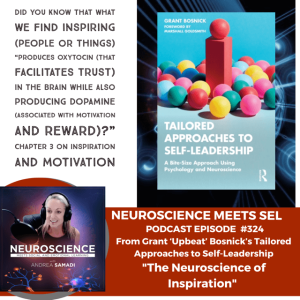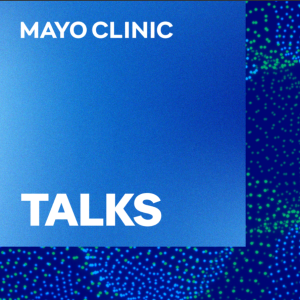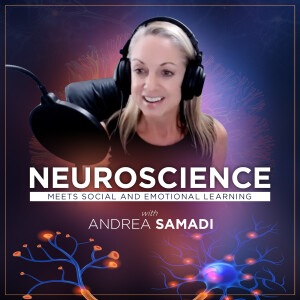
Welcome back to Season 11 of the Neuroscience Meets Social and Emotional Learning podcast! Today we are diving into episode 324, where we continue our transformative 18-week Self-Leadership series. We explore the riveting application of practical neuroscience and uncover how it influences our daily life, productivity, and overall well-being.
In this episode, we delve into the third chapter of Grant 'Upbeat' Bosnick's book, focusing on the Neuroscience of Inspiration and Motivation – a topic that scored highest in my self-assessment. Grant emphasizes the importance of self-motivation and inspiration in propelling us towards our goals, and we explore how these elements chemically affect our brains.
Discover the powerful role inspiring stories and images play in our lives, producing neurochemical oxytocin (facilitating feelings of trust) and dopamine (associated with motivation and reward). Learn how the individuals, places, or things that inspire us can connect, rewire our brains and form new ideas through the process of neuroplasticity.
This episode aims to provide listeners with practical steps to integrate the neuroscience of inspiration into their lives. Identify the individuals and factors that inspire and motivate you, visualize the chemical reactions occurring in your brain during moments of inspiration, and finally, understand the implication of this knowledge on a deeper level.
Join us as we continue our journey of self-discovery, blending neuroscience with everyday practices to reach unparalleled heights in productivity and performance, creating a future by design, not default.
EPISODE #323, Chapter 2, “Using Neuroscience to Level Up Your 2024 Goals”
✔ What is Kurt Lewin’s “Field Theory” and how can we use it to improve our performance towards our goals in 2024?
✔ 3 STEPS for Applying Field Theory into our Daily Life to Reach Heightened Levels of Achievement in 2024.
EPISODE #324, Chapter 3, “The Neuroscience of Inspiration”
✔ Uncover WHO or WHAT inspires you.
✔ Learn what happens to our brain when we are inspired (by a person or a thing).
✔ Apply the Neuroscience of Inspiration to our life in 3 steps: WRITE, THINK and LEARN to Level Up Our Results in 2024.
On today's episode #324 we continue with our 18-Week Self-Leadership Series based on Grant ‘Upbeat’ Bosnick’s “Tailored Approaches to Self-Leadership: A Bite Size Approach Using Psychology and Neuroscience” that we first dove into with our interview on EP #321.[i] During this interview, I told Grant that his book contained a thorough and deep overview of the Neuroscience of Self-Leadership, and I felt like each of the 18 chapters could be covered in 18 weeks, so I decided to set our season theme to the Neuroscience of Self-Leadership that will be our focus until June of this year.
My goal with EACH of these next episodes, covered over the next 18 weeks, is that the application of the neuroscience within each lesson, will change us in some way, create new meaning, giving us NEW AHA Moments, open up NEW portals of creativity, that we can use to accelerate our results in 2024.
Before we do this, I highly encourage you to take your own Leadership Self-Assessment so you can see which chapters of Grant’s book come out for you as GREEN or important to focus on now, which chapters are ORANGE and not as important, and which ones for you, came out as RED, and lower priority. As we go through these lessons, just keep an open mind to what it is that you might learn from these three areas.
- Take note of AHA Moments of learning- from each lesson.
- Did something jump out at you as important in an area that was of lower priority? (RED)
- Be sure to circle, or write out the NEW learnings from these lessons that you will put into action to improve your results this year. Remembering that it’s not just thinking in a certain way that will change our results, but we’ve also got to take action with what we learn.
Whatever concepts we learn within each chapter, I hope that the science gives you something NEW to help you to THINK DIFFERENTLY this year, and move you to greater heights with more momentum like we learned from Kurt Lewin’s Field Theory last week.
For today’s episode #324, we will be looking at Chapter 3, “The Neuroscience of Inspiration and Motivation” which came out as my highest scoring area on the Self-Assessment Quiz.
Grant opens up Chapter 3 by saying “we cannot motivate others; we can only inspire them. Motivation comes from within. Inspiration can come from anywhere—within us, around us and through us.” (Ch 3, Grant Bosnick, Tailored Approaches to Self-Leadership).
Next, he says that “inspiration is moving people, or being moved ourselves, to be excited about achieving something. It’s about seeing or doing things differently, or changing our thinking, feeling or who we are, now and for the future.” Ch 3, Grant Bosnick, Tailored Approaches to Self-Leadership).
I’m looking at this chapter, as one of the positive forces that can help us to gain momentum towards our goals, thinking about Kurt Lewin’s Field Theory from our last EP 233.[ii] Using motivation (that comes from within) and inspiration to drive us towards our goals, I’m hoping this chapter will help us to uncover some new ideas that we can use to push us forward, and help us to gain that feeling of momentum as we are in pursuit of our goals. Grant asks us to think about what inspires you? People or things? I find inspiration in both and use ideas from other people to help me to write these episodes, while also can gain inspiration from nature, or being near beautiful places, and buildings.
- Who inspires you?
- What inspires you?
Next, think about why this person or thing inspires you. Does it give you more hope for the future, or help you to see things differently? What else comes to your mind when you think about people or places that inspire you?
The Neuroscience of Inspiration
DID YOU KNOW “that inspiring stories and images produce oxytocin in our brain? Oxytocin is the neurochemical that facilitates feelings of trust. Inspiration also produces dopamine in our brains (Ashby et al., 1999, Depue and Collings, 1999) which is a neurochemical associated with motivation and reward.” Ch 3, Grant Bosnick, Tailored Approaches to Self-Leadership).
Think about this for a minute.
Those people who inspire us, we will tend to trust more, because of the neurochemical oxytocin that was released into our brain. We covered the Neuroscience of Trust on EP #206[iii] right before our interview with Greg Link, who wrote a book on this topic with Stephen M.R. Covey (the son of the late Dr. Stephen R. Covey) called Smart Trust: The Defining Skill That Transforms Managers into Leaders.[iv] Dr. Stephen Covey would say that “Trust in the highest form of human motivation. It brings out the very best in people. But it takes time and patience.”
We also learned that trust “frees up the brain for other activities like creativity, planning and decision-making”[v] which to me shows on a brain level why “the act of extending trust is an act of leadership.” (Stephen M.R. Covey).
Then we can look at inspiration that produces dopamine in our brain, and is associated with motivation and reward, so people and places that inspire us, can also motivate us, magnifying the trust we feel, and lead us forward.
AHA Moment of Learning!
Does the Neuroscience of Inspiration give you a whole new outlook on certain people and places in your life? Does it help you to understand yourself on a deeper level? Maybe you wondered “what about this person or place motivates me?” or “Why do I feel trust towards one person, and not another?” I do believe that trust is a feeling that can be felt, since everything going on inside is expressed on the outside. You can see and feel these vibrations and frequencies that we covered in depth with David Wong[vi], and frequencies don’t lie. I agree with Dr. Stephen Covey that this trust we feel through inspiration is “a performance multiplier which takes your trajectory upwards, for every action you engage in, from strategy to execution.”
I think it’s interesting to see how the chemicals in our brain draw us towards certain people or places, connected to whatever it is that inspires us.
Wait there’s more!
Grant goes on to explain that “the concept of neuroplasticity underpins inspiration” and that “Neuroplasticity is the brain’s ability to form new connections and reorganize itself as a result. Through inspiration, our brain is literally restructuring itself as we connect ideas together to form new ideas. The process of inspiration carves our new pathways inside the brain.” Ch 3, Grant Bosnick, Tailored Approaches to Self-Leadership).
Our brains are literally being changed by people or places that inspire us. They are not only motivating us, but these people and things (like places, or artwork, or nature) rewire our brain, helping us to form new ideas. If you ask me, this is a key piece of information for us to understand if we want to be more innovative and creative this year, and take our results to new heights.
Grant’s book, and chapter 3, dives deeper into motivation and inspiration, and crosses into later chapters of the book, but for now, we will end here, as we take The Neuroscience of Inspiration, and see how we can apply it in our own life, to help us to overcome negative challenges, and create the momentum needed to reach heightened levels of performance towards our goals this year.
PUTTING THE NEUROSCIENCE OF INSPIRATION INTO PRACTICE:
- WRITE:
Write a list of:
- Who inspires you, and why?
- Do you feel trust with this person that could be a performance multiplier? Think about this. Why, or why not?
- What inspires you, and why?
- Do you feel motivation from places that we know can rewire our brain and make new neural connections?
- THINK:
Think of your brain being bombarded by oxytocin (the neurochemical that facilitates the feelings of trust) and then dopamine (the neurochemical associated with motivation and reward) and then the NEW neural pathways that are being rewired into your brain with whatever it is that you are drawing inspiration from.
- LEARN:
What does this mean to you? Does it help you to make sense of your world in a new way? Does this connection to science help to motivate you in a NEW way, perhaps pushing you past some of the obstacles that once held you back? Does this NEW understanding energize you in some way, or give you more self-awareness towards your goals?
My goal with these bite-sized chapters connecting Neuroscience and Self-Leadership to our daily practice, is that we begin to see how simple it is to connect an understanding of how our brain works, to our best practices, that we tap into daily, taking us to new heights.
Applying the Neuroscience of Inspiration to my life, I can clearly see what’s most important to me, why I’m drawn to certain people or places, and how important it is for me to keep learning, and applying what we uncover together on these episodes.
REVIEW AND CONCLUSION
To review and conclude this week’s episode #324 on “The Neuroscience of Inspiration” we asked the question:
DID YOU KNOW: “that inspiring stories and images produce oxytocin in our brain? Oxytocin is the neurochemical that facilitates feelings of trust. Inspiration also produces dopamine in our brains which is a neurochemical associated with motivation and reward.” Ch 3, Grant Bosnick, Tailored Approaches to Self-Leadership).
Next, we put The Neuroscience of Inspiration into action in our daily life with 3 steps:
STEP 1 WRITE: A list of who or what inspires you, and why.
STEP 2 THINK: Of what is happening to your brain when it’s being inspired (by a person or thing). It’s being bombarded by oxytocin, which is why you will feel trust, and dopamine is released which will motivate you in a new way.
STEP 3 LEARN: What does the Neuroscience of Inspiration mean to you? How can you use this understanding to help you to gain momentum towards your 2024 goals, and push you towards higher levels of achievement?
Once we have our list of who or what inspires us, and we can imagine the neural pathways in our brain making NEW connections, we just keep learning, growing and moving forward, with NEW momentum, in the direction of our goals. With each lesson we cover, I’m hoping to show us how we can gain the momentum needed to activate Lewin’s Field Theory, and suddenly, life becomes easy. The resistances fade away, and our goals or whatever it is we are working on, are not far off in the distance, but they are within our reach.
This is when we know we can use our MINDS and understanding of our BRAIN, to turn MIND into MATTER, and create our own futures by design, rather than let them happen by default.
I’ll end with a quote to highlight the self-awareness we will build once we’ve implemented this lesson into our daily life, since our goal with this 18-week series is to help each of us to become more self-aware.
“The first and best victory is to conquer self” – Plato
I hope the Neuroscience of Inspiration has helped you in some way, to move closer to whatever it is you are working on this year.
I’ll see you next week with Chapter 4 on Mindfulness.
REFERENCES:
[i]Neuroscience Meets Social and Emotional Learning Podcast EPISODE #321 with Grant ‘Upbeat’ Bosnick https://andreasamadi.podbean.com/e/insights-from-grant-upbeat-bosnick/
[ii] Neuroscience Meets Social and Emotional Learning Podcast EPISODE #323 https://andreasamadi.podbean.com/e/insights-from-season-11-of-the-neuroscience-meets-sel-podcast/
[iii]Neuroscience Meets Social and Emotional Learning Podcast EPISODE #207 Brain Fact Friday on The Neuroscience of Trust https://andreasamadi.podbean.com/e/brain-fact-friday-on-the-neuroscience-of-trust/
[iv] Smart Trust: The Defining Skill That Transforms Managers into Leaders by Stephen M.R. Covey and Greg Link Published September 3, 2013 https://www.amazon.com/Smart-Trust-Defining-Transforms-Managers/dp/1451652178
[v] The Neuroscience of Trust https://headheartbrain.com/brain-savvy-hr/the-neuroscience-oftrust/#:~:text=High%20levels%20of%20trust%20are,amygdala%20and%20trust%20decreases%20activation.
[vi]Neuroscience Meets Social and Emotional Learning Podcast EPISODE #312 with David Wong on Mastering Your Frequency https://andreasamadi.podbean.com/e/the-frequency-expert-david-wong-on-master-your-frequency-and-take-control-of-your-personal-professional-life-and-health/
More Episodes
Brain Fact Friday on "Training Your Brain to Self-Regulate Automatic Negative Thoughts and Emotions"
 2021-03-12
2021-03-12
 1.1k
1.1k
Resiliency Expert and Author Horacio Sanchez on "Finding Solutions to The Poverty Problem"
 2021-03-07
2021-03-07
 1.1k
1.1k
Brain Fact Friday on "Using the Reticular Activating System to Set Your Intent and Achieve it!"
 2021-03-05
2021-03-05
 1.1k
1.1k
Achieving Quantum Leap Results Using Price Pritchett's "You Squared" Principles
 2021-02-26
2021-02-26
 2.3k
2.3k
CEO of Fisher Wallace Laboratories Kelly Roman on "Wearable Medical Devices for Anxiety, Depression, and Sleep/Stress Management"
 2021-02-19
2021-02-19
 1.2k
1.2k
Behavior Analyst and Author Jessica Minahan on her book "The Behavior Code: A Practical Guide to Understanding and Teaching the Most Challenging Students"
 2021-02-13
2021-02-13
 1.8k
1.8k
Review of Neuroscientist and Best-Selling Author Dr. Caroline Leaf's "Cleaning Up Your Mental Mess" Coming March 2nd!
 2021-02-05
2021-02-05
 1.3k
1.3k
Dr. Kelley Munger and Megan Marcus from FuelEd Schools "Developing Emotionally Intelligent Educators Who Create Relationship-Driven Schools"
 2021-01-29
2021-01-29
 1.2k
1.2k
Sleep Scientist Antonio Zadra on "When Brains Dream: Exploring the Science and Mystery of Sleep."
 2021-01-24
2021-01-24
 1.1k
1.1k
The Neuroscience of Leadership: 3 Ways to Reset, Recharge and Refuel Your Brain for Your Best Year Ever
 2021-01-17
2021-01-17
 1.1k
1.1k
Aneesh Chaudhry on "Mental Health, Well-Being and Meditation: Overcoming Addiction Using Your Brain"
 2021-01-09
2021-01-09
 914
914
Lessons Learned From Our FIRST 100 Episodes
 2020-12-24
2020-12-24
 952
952
Professor Mary Helen Immordino-Yang on "The Neuroscience of Social and Emotional Learning"
 2020-12-16
2020-12-16
 1.3k
1.3k
Irene Lyon, Msc on "The Science Behind Trauma and a Healthy Immune System for an Improved Life"
 2020-12-13
2020-12-13
 1.2k
1.2k
Dr. Dawson Church on "The Science Behind Using Meditation: Rewiring Your Brain for Happiness."
 2020-12-03
2020-12-03
 1.1k
1.1k
Kirun Goy and Samuel Holston from the Brain Tools Podcast on "The Neuroscience Behind our Habits, Addictions, Love/Fears."
 2020-11-18
2020-11-18
 981
981
Dr. Daniel Stickler on "Expanding Awareness for Limitless Peak Performance, Health, Longevity and Intelligence."
 2020-11-14
2020-11-14
 862
862
Dr. Sandy Gluckman on "Reversing Children's Behavior and Mood Problems by Treating Root Causes."
 2020-11-08
2020-11-08
 1.3k
1.3k
Personal Trainer and Fitness Model Jason Wittrock on "Nutrition, Intermittent Fasting and the Ketogenic Diet."
 2020-11-03
2020-11-03
 781
781
Dr. Momo Vuyisich on "Improving the Health of Your Microbiome, Preventing and Reversing Chronic Disease."
 2020-10-31
2020-10-31
 788
788
Get your brand heard on this podcast
Join Podbean Ads Marketplace and connect with engaged listeners.
Advertise Today
Create your
podcast in
minutes
- Full-featured podcast site
- Unlimited storage and bandwidth
- Comprehensive podcast stats
- Distribute to Apple Podcasts, Spotify, and more
- Make money with your podcast
It is Free
You may also like

Mayo Clinic Talks


The Saad Truth with Dr. Saad


Positive Thinking Mind


The Jordan B. Peterson Podcast


The Mel Robbins Podcast


- Privacy Policy
- Cookie Policy
- Terms of Use
- Consent Preferences
- Copyright © 2015-2024 Podbean.com



 iOS
iOS Android
Android